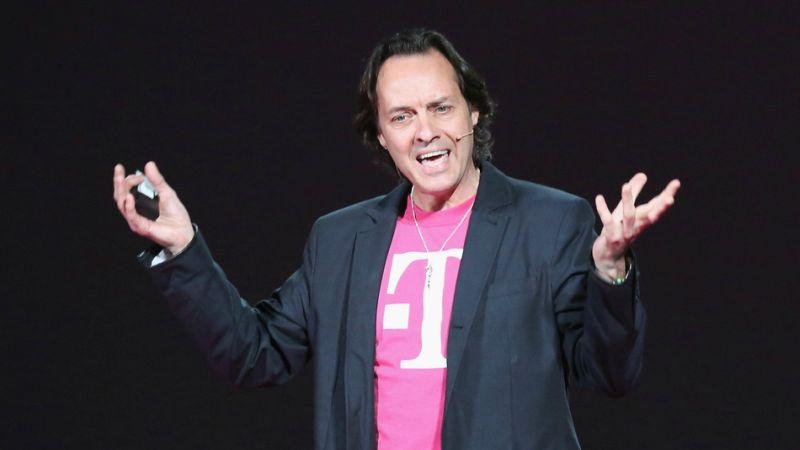
T-Mobile seems to be on a serious roll over this past year or so. Their radical changes that they’ve made to their own company has set the bar quite a bit higher for other carriers to compete with. The once borderline extinct carrier really has come a long way in a short period of time. The fact of the matter is, even if you don’t use T-Mobile, you have probably been able to benefit in some way from their "UnCarrier" ways.
Honestly, after the first couple of “UnCarrier” changes, I would have thought that T-Mobile was done challenging other companies to change - it would seem like they had already done enough. As it turns out, though, T-Mobile is far from finished as they just recently announced another challenge for both AT&T and Verizon to complete - getting rid of data overage charges.
Overage charges, if you’ve never had them or seen a bill that has overages, are a major pain in the butt. They’re extremely overpriced and often times a person will be caught off guard by just how high overage fees can go. Although a user will likely get text warnings when they’re about to hit their data cap limit, sometimes the data just keeps flowing regardless. In the eyes of big corporations, it’s a win-win scenario: you get the data you apparently need, and they get to reap in the rewards at a hiked price. But of course, in most cases, the user is not going to feel like they win when they have to shill out way more money than they expected to the next month.
If you’re lucky, your carrier will waive the fee for this month - but they probably won’t do it again.
That was one reason why I liked Sprint. Despite the fact that my data may have been spotty in a lot of areas around town, I never had to worry about overage fees regardless. Their unlimited data plans with no throttling has always been an appealing idea to me, so for that I have to give Sprint props. As for T-Mobile, a company who offers more than unlimited data plans and therefore give users the opportunity to rack up overage fees, the winds of change are a-blowin’ as CEO John Legere decides that overage fees are “predatory” and “wrong”.
In this new plan unveiled from T-Mobile, called the Simple Starter plan, customers can pay $40 a month for unlimited talking and texting, and receive 500MB of data per month. Should the user hit that cap, the data flow stops completely and the user then has to rely on WiFi for data access for the remainder of the month. Alternatively, if the user feels they need more data from T-Mobile, they do have the option of purchasing a 1-day 500MB data pass for $5, or a 7-day 1GB data pass for $10. Either way, what you sign up for is what you sign up for; no surprise fees here.
While I don’t think this plan is going to be all that popular (500MB of data isn’t much when it comes to smartphones, but primarily WiFi users will probably find the price and the features quite compelling) the idea behind ditching overage charges is something to admire. Even though I have yet to actually surpass my monthly data allotment since switching to Verizon, it is something that is consciously in the back of my mind now. I have this fast and great LTE coverage, but dad gummit if I don’t try my darndest not to use it if I don’t have to. Why? Because of the fear of overage fees. That is one surprise that nobody wants to find on their monthly bill.
Whether AT&T and Verizon will actually follow T-Mobile’s lead is an entirely different game. Obviously Verizon and AT&T are doing well off on their own at this point, but I do wonder how long other companies are able to keep up their charades when T-Mobile keeps constantly challenging their tactics - tactics that many people considered “normal” in the industry.
Readers, have you ever been charged data overages, or is it a thought that plagues the back of your mind every month? Do you think AT&T and Verizon should ditch data overage charges? Let us know your thoughts in the comments below!
Image via Mashable